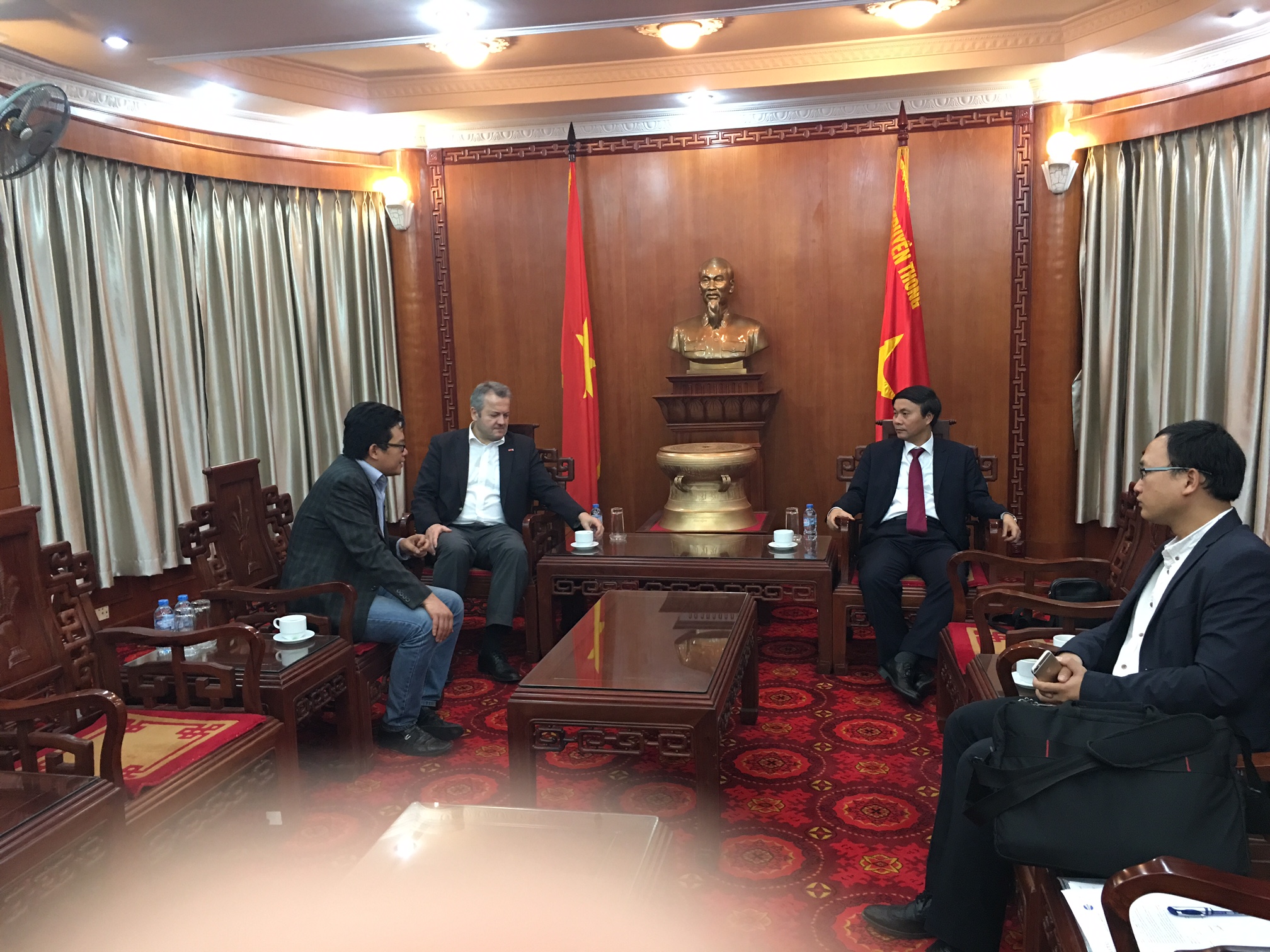Chair for Computational Mechanics UTC
2015 CHAIR FOR COMPUTATIONAL MECHANICS INAUGURATION
Video-of-Inauguration
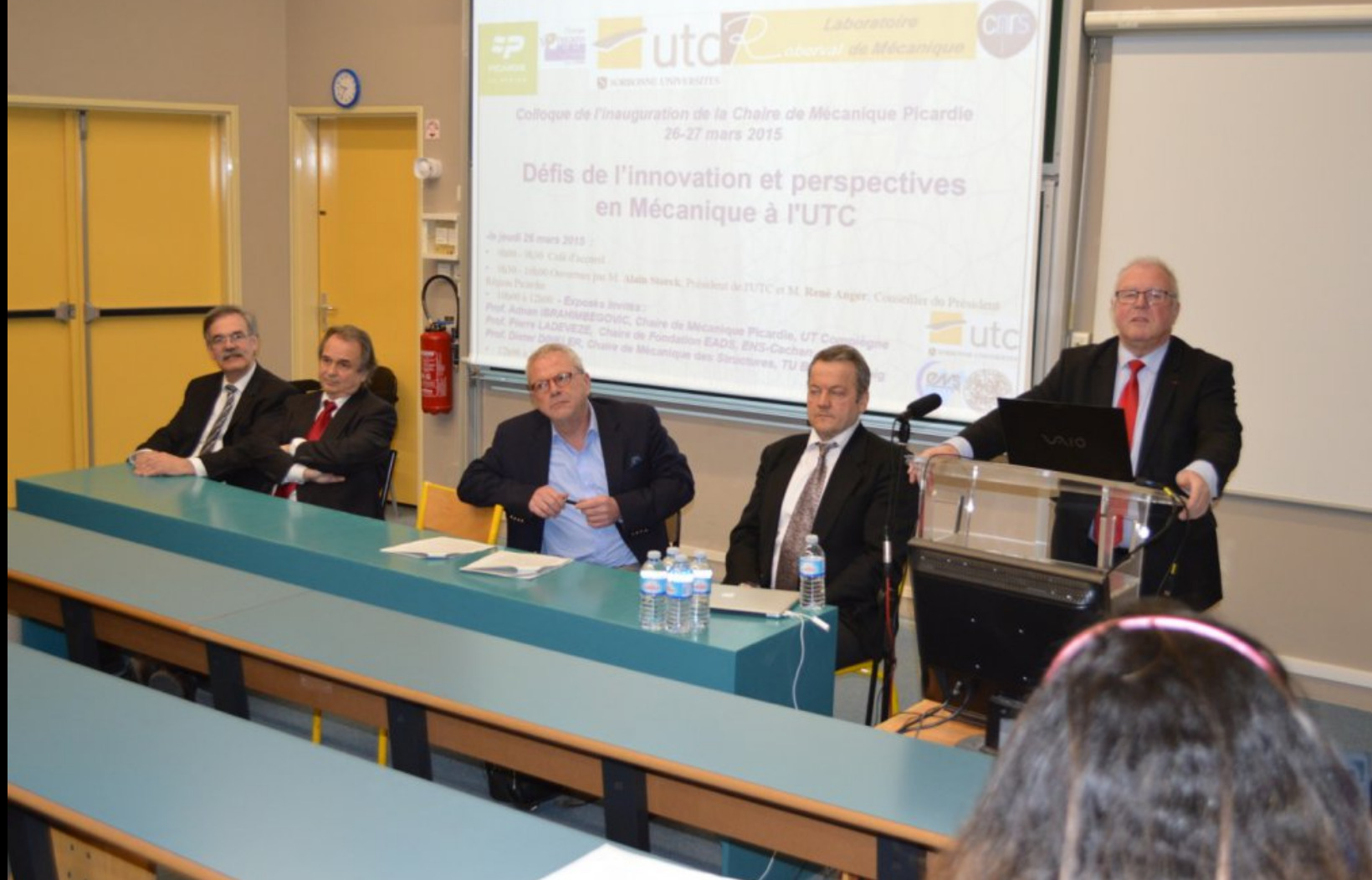
LIST OF PROJECTS / ACTIVITIES IN CHAIR FOR COMPUTATIONAL MECHANICS UTC:
- 2021 COLLABORATION WITH EPFL SWITZERLAND
- 2021 COLLABORATION WITH UNIV. SARAJEVO, BiH
- 2021 5th ECCOMAS MSF CONFERENCE AND SHORT COURSE
- 2020 COLLABORATION WITH USP BRAZIL
- 2020 IUF-INSTITUT UNIVERSITAIRE DE FRANCE – RENEWAL OF MEMBER SENIOR APPOINTMENT
- 2019 MEMBER OF ACADEMY OF SCIENCES AND OF ARTS BiH (ANUBiH)
- 2019 4th ECCOMAS MSF CONFERENCE AND SHORT COURSE
- 2018 RESEARCH PLATFORM MECA-MATH, Inauguration Workshop, April 19, 2018
- 2018 CILAMCE CONGRESS ORGANIZATION WITH USP COLLEAGUES
- 2017 3rd ECCOMAS MSF CONFERENCE AND SHORT COURSE
- 2016 COLLABORATION WITH TUBs GERMANY
- 2016 GAY LUSSAC-HUMBOLDT AWARD BY FRENCH ACADEMY OF SCIENCES – at proposal by Adnan Ibrahimbegovic, Pierre Ladeveze & Roger Ohayon
- 2016 COLLABORATION WITH KAIST, SOUTH KOREA
- 2016 COLLABORATION WITH IPN MEXICO
- 2016 COLLABORATION WITH USP BRAZIL
- 2017-2018 WORLD CLASS PROFESSOR PROGRAM FOR INDONESIA
- 2017 COLLABORATION WITH UTC HANOI, VIETNAM
Professor Adnan Ibrahimbegovic launched a collaborative project with Material Science Engineering Lab. at EPFL – ECOLE POLYTECHNIQUE FEDERALE DE LAUSANNE, the top engineering school in Switzerland. The collaboration with EPFL colleagues concerns novel multi-scale models for ferroelectric materials.
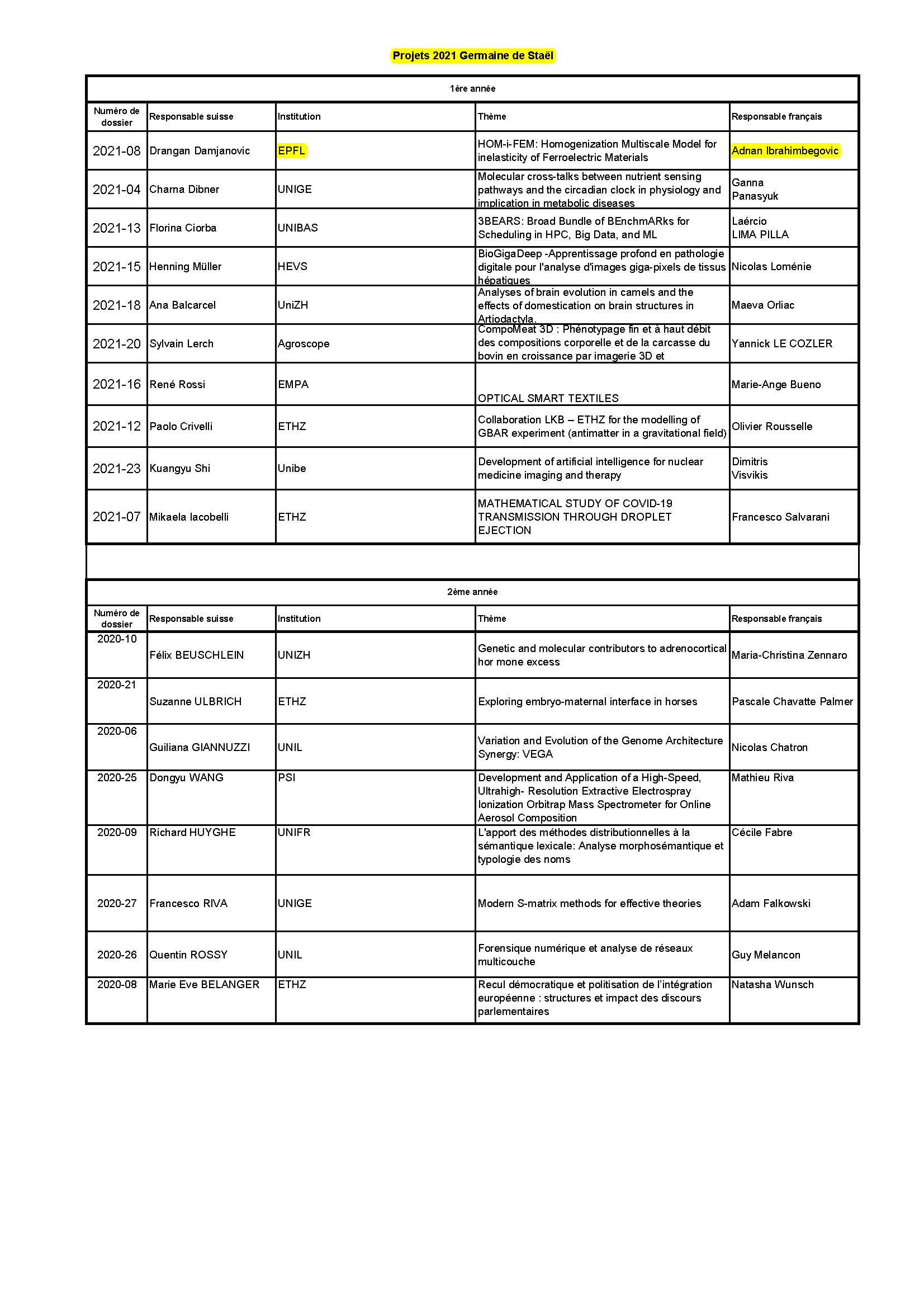
Professor Adnan Ibrahimbegovic launched a collaborative project with Civil Engineering Department of UnSa – UNIVERSITY OF SARAJEVO, the top engineering school in Bosnia and Herzegovina. The collaboration with UnSa colleagues concerns novel developments in complex engineering system performance amelioration in energy and environmental aspects.

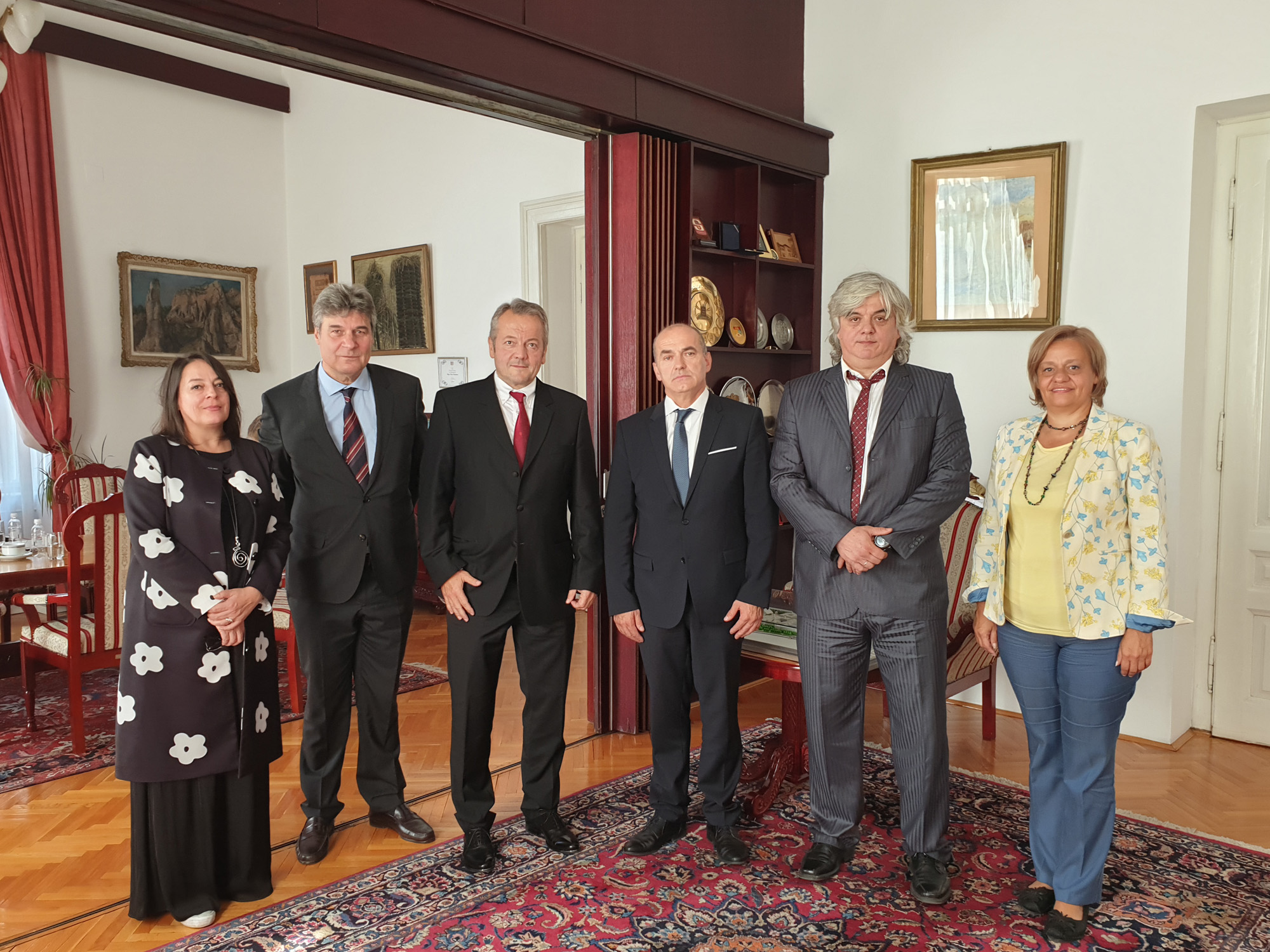
Short Course held at 5th ECCOMAS MSF 2019, entitled “Current Research on Solids & Fluids: Computations, FE Code Coupling, Model Reduction, Probability… ” has attracted over 25 participants. The lectures were given by Professors Adnan Ibrahimbegovic, Nikolaos Limnios, Abdellatif Ouahsine and Florian de Vuyst from UTC France, along with Professor Hermann Matthies from TU Bruanschweig Germany and Professor Jose Luis Perez Aparicio from UP Valencia Spain.
Professor Adnan Ibrahimbegovic launched a collaborative project with Escola Politecnika at USP – UNIVERSITY OF SAO PAULO, the top engineering school in Brazil. The collaboration with USP colleagues concerns novel developments in mechanics, stochastics and control with code-coupling.
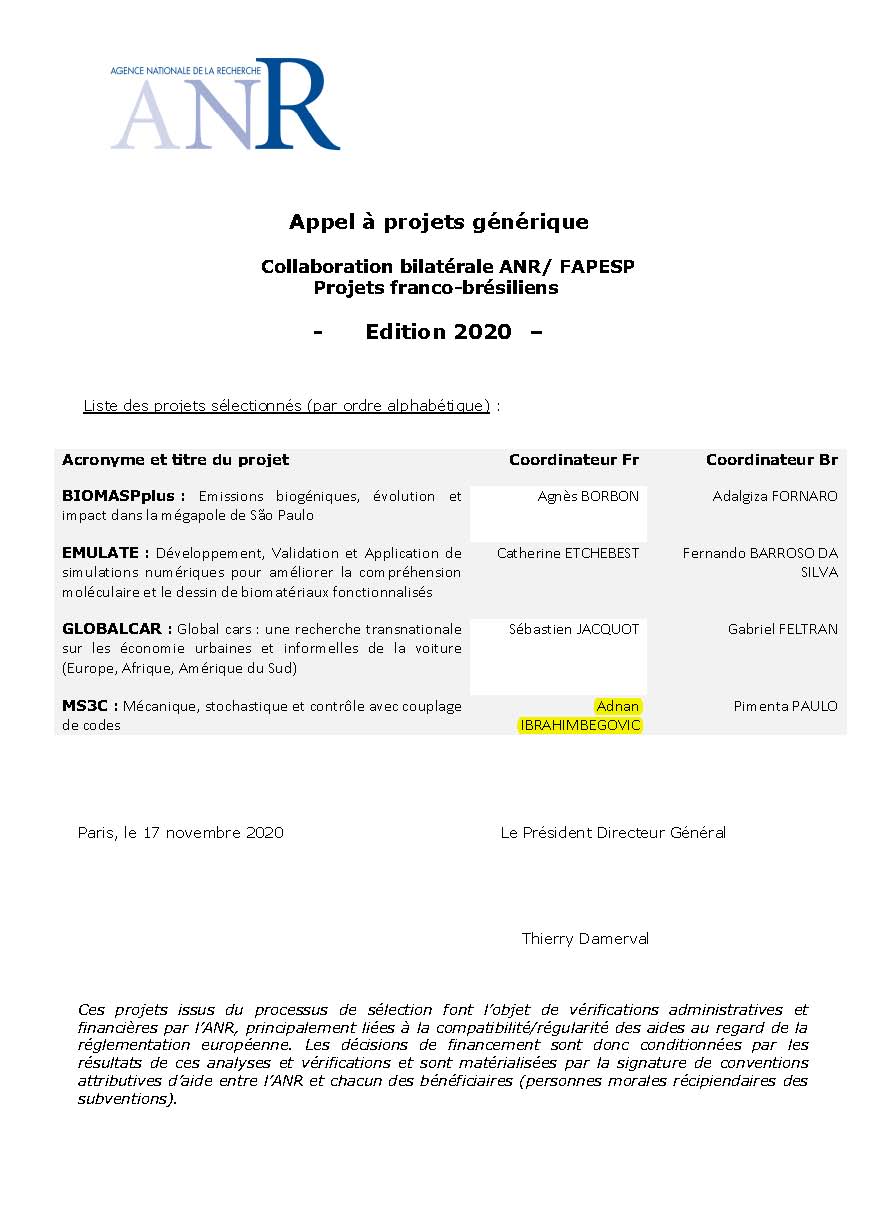
Adnan Ibrahimbegovic re-elected Member Senior of IUF – Institut Universitaire de France in recognition of research excellence, granting him the privilege of reduced teaching oriented towards graduate studies and additional research funding for interdisciplinary research.
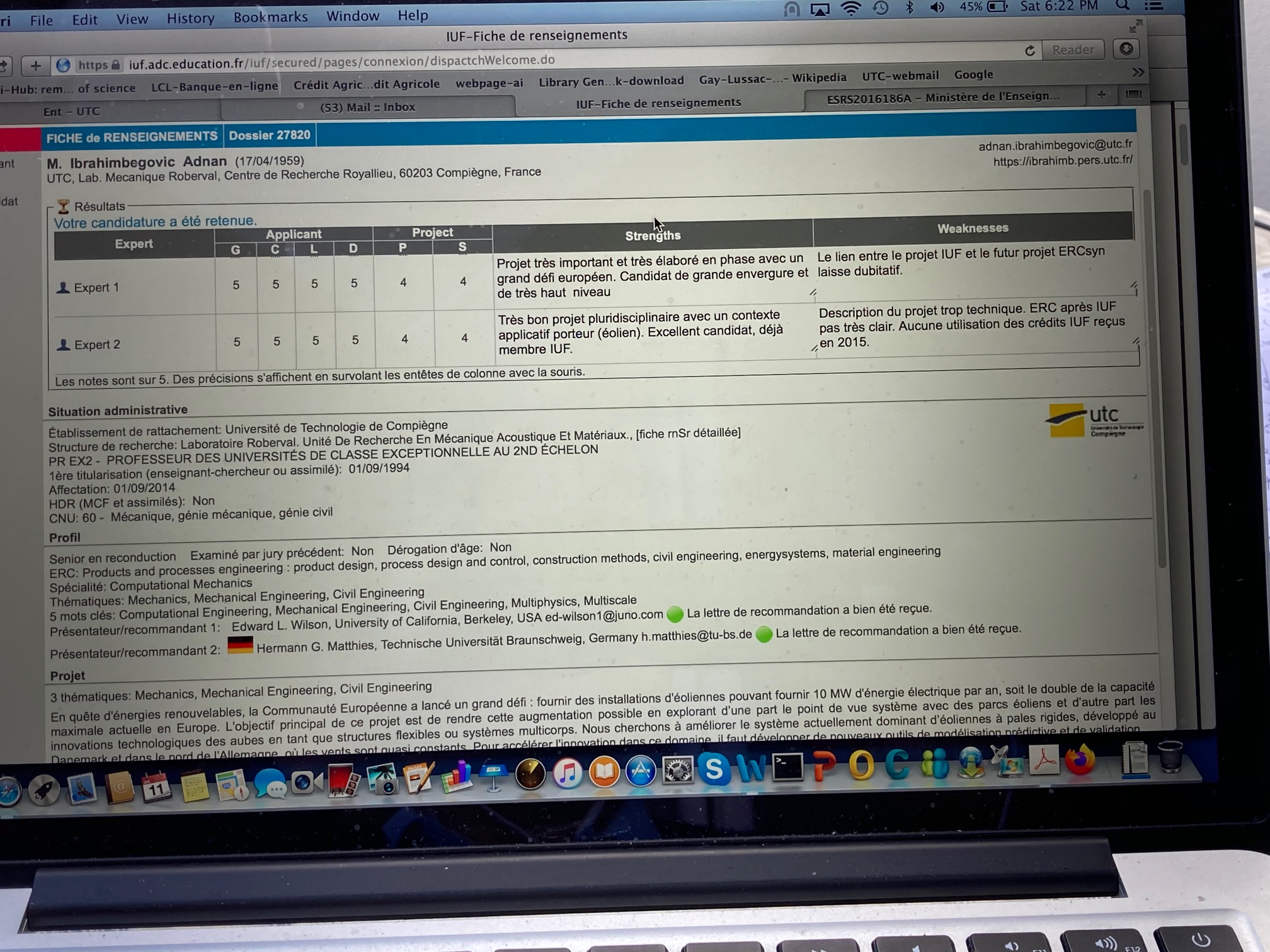
http://www.iufrance.fr/les-membres-de-liuf/membre/1479-adnan-ibrahimbegovic.html
Adnan Ibrahimbegovic elected member of Academy of Sciences and of Arts of BiH (ANUBiH), in the section of Technical Sciences.
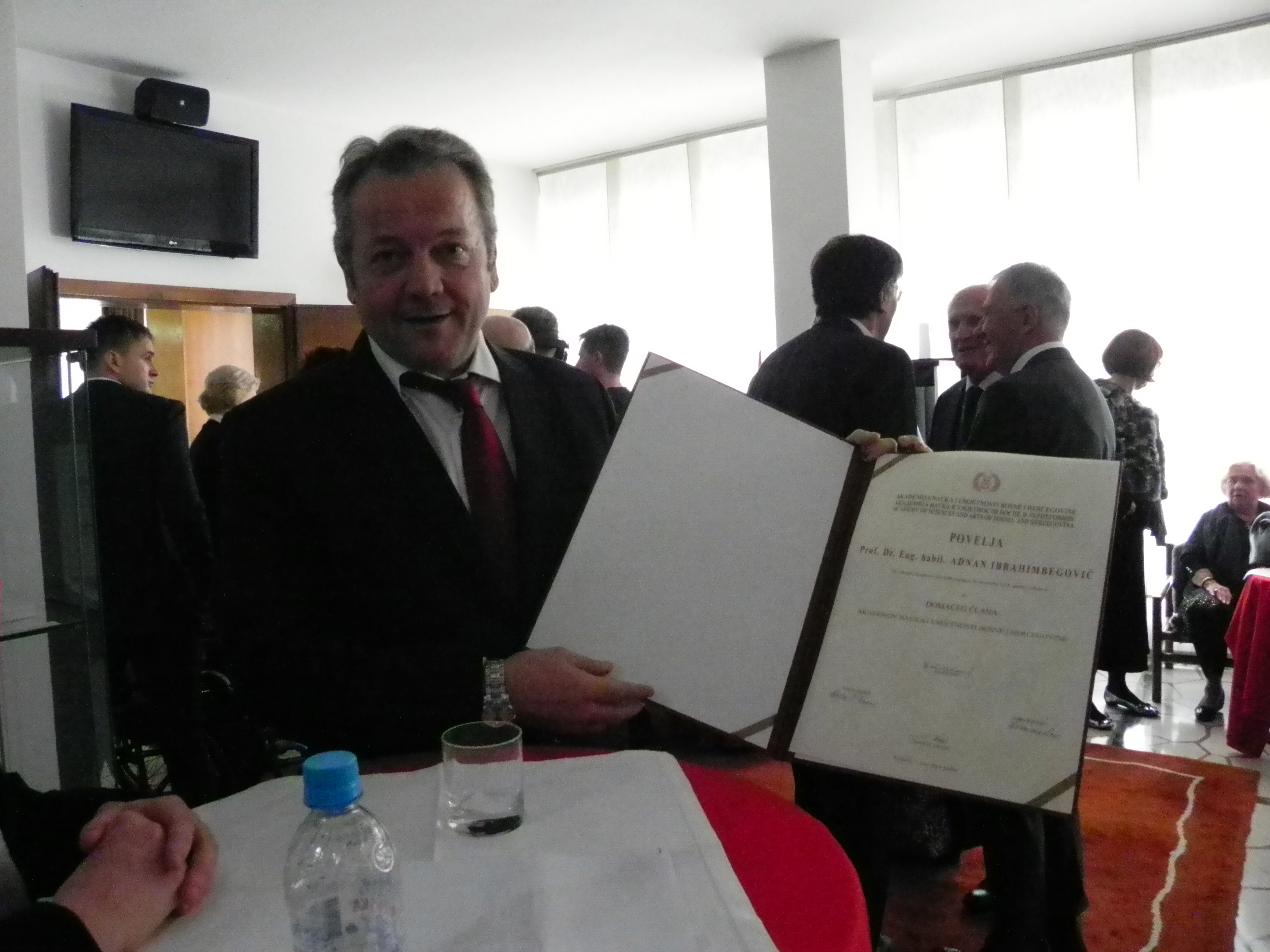

Short Course held at 4th ECCOMAS MSF 2019, entitled “Current Research on Solids & Fluids: Computations, FE Code Coupling, Model Reduction, Probability… ” has attracted over 30 participants. The lectures were given by Professors Adnan Ibrahimbegovic, Nikolaos Limnios, Abdellatif Ouahsine and Florian de Vuyst from UTC France, along with Professor Hermann Matthies from TU Bruanschweig Germany and Professor Jose Luis Perez Aparicio from UP Valencia Spain.
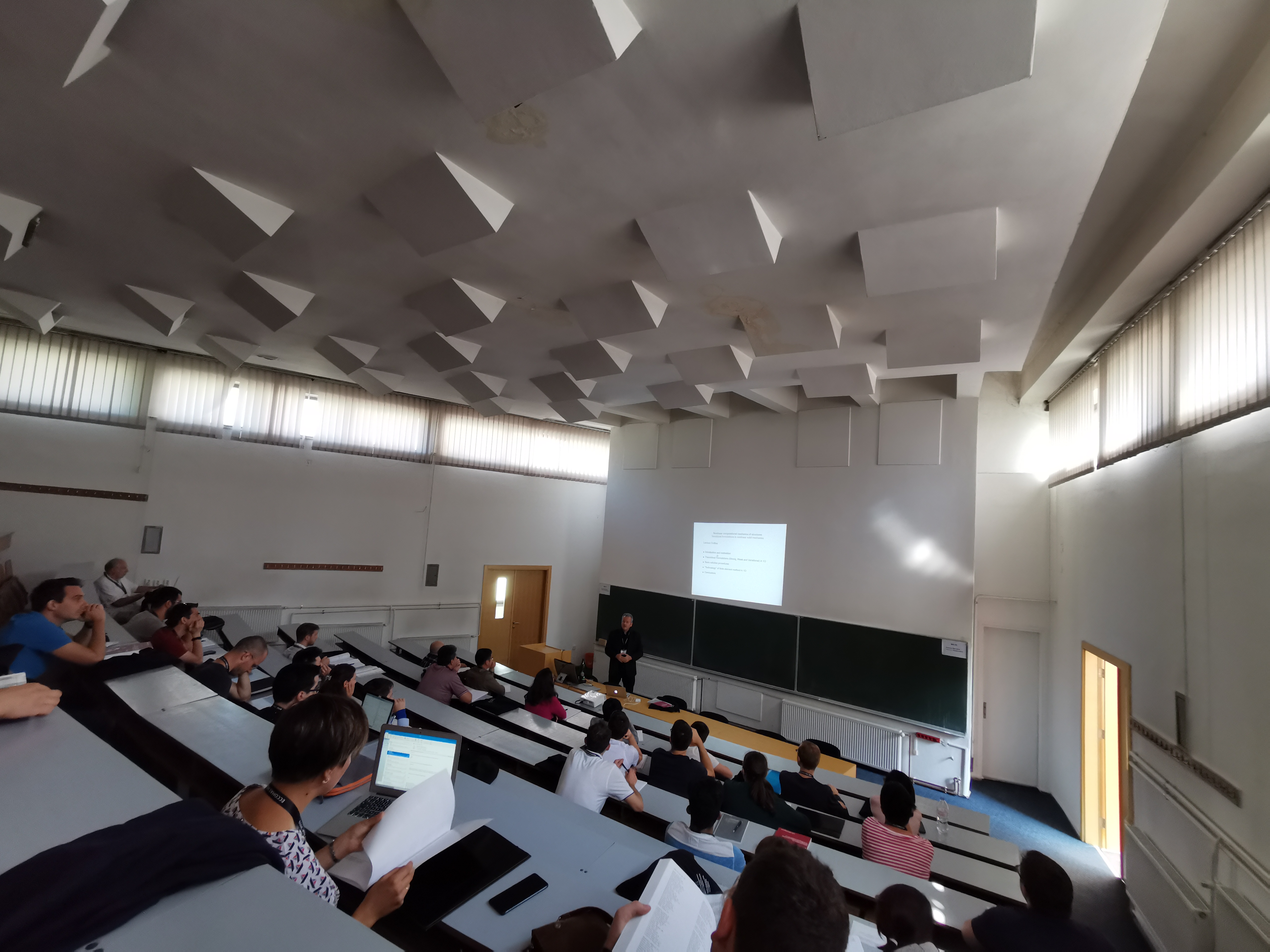
Two UTC Laboratories are creating a joint research platform dedicated to Mechanics Models and Mathematics Algorithms. The inaugural workshop is scheduled for Thursday, April 19, 2018. The detailed program is as follows
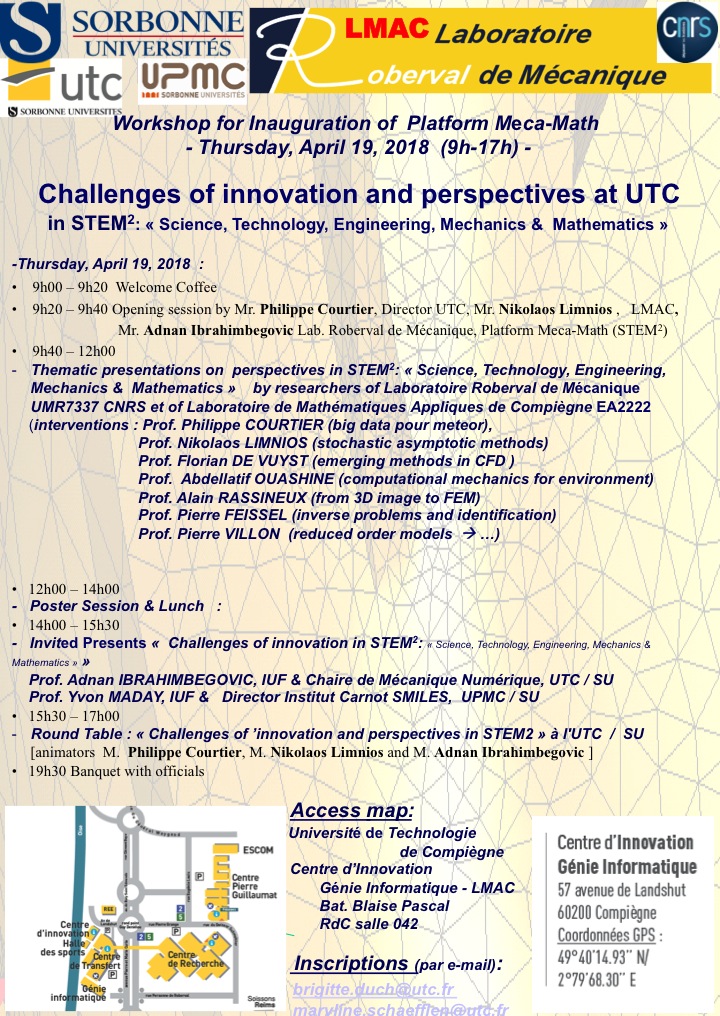
2018 XXXIX Latin American Iberian Congress on Computational Methods in Engineering, held November 11-14, 2018 at University of Technology in Compiegne and at IUF-Institut Universitaire de France in Paris.
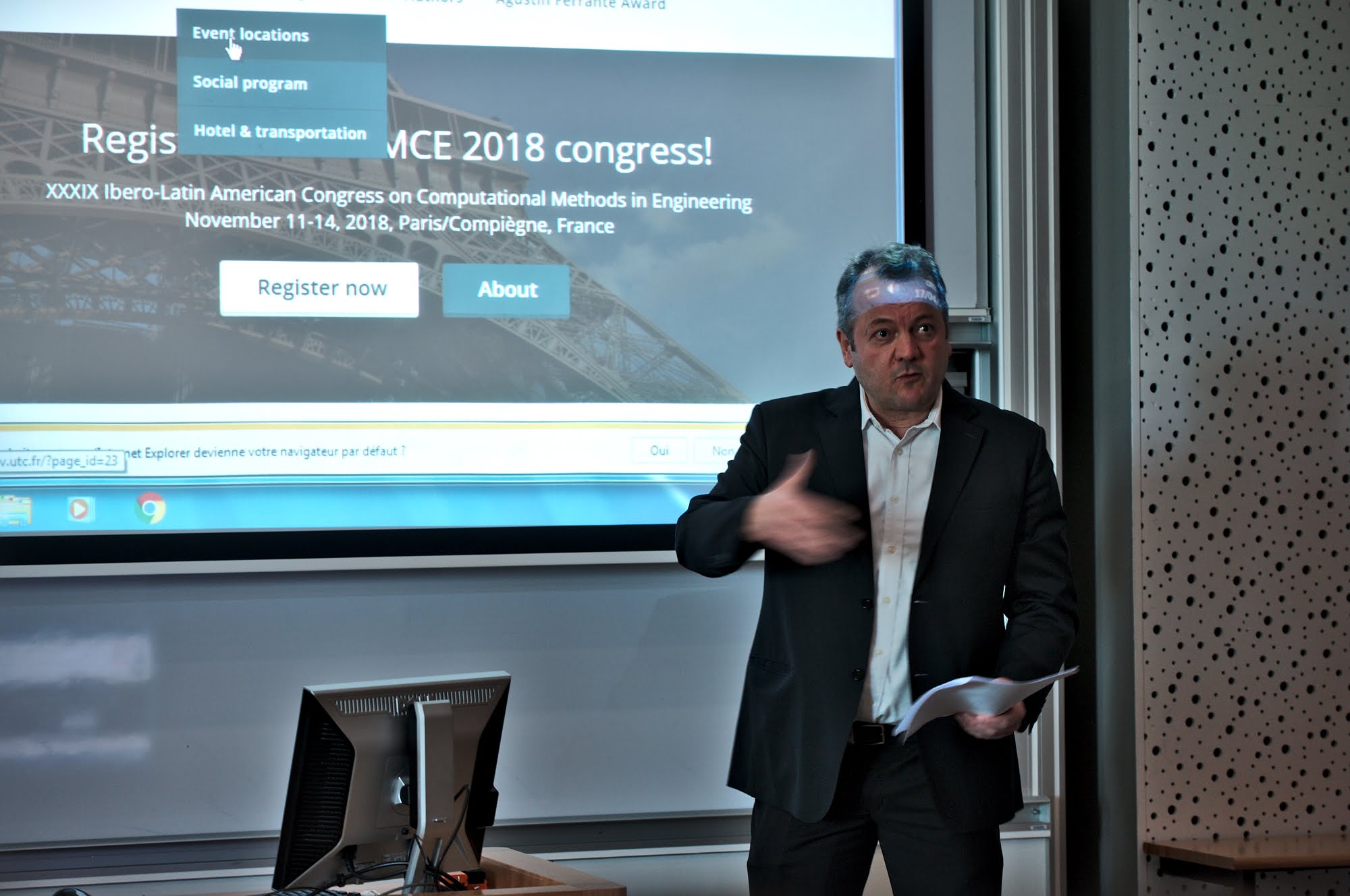
Short Course held at 3rd ECCOMAS MSF 2017, entitled “Current Research on Solids & Fluids: Computations, FE Code Coupling, Model Reduction, Probability… ” has attracted over 40 participants. The lectures were given by Professors Adnan Ibrahimbegovic, Abdellatif Ouahsine and Florian de Vuyst from UTC France, along with Professor Hermann Matthies from TU Bruanschweig Germany and Professor Jose Luis Perez Aparicio from UP Valencia Spain.
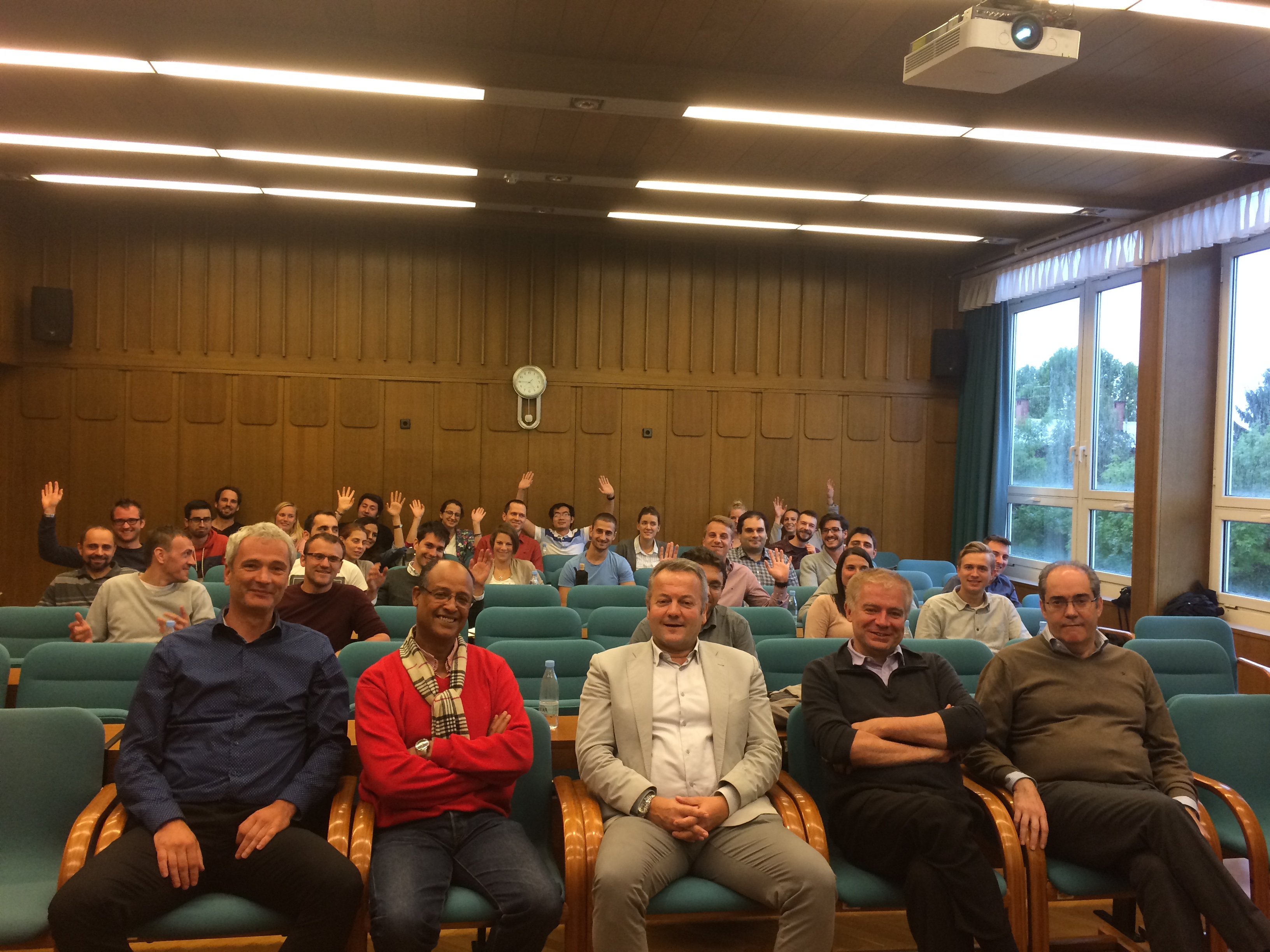
Professor Adnan Ibrahimbegovic launched a collaborative project with WIRE – Institute for Scientific Computing at TUBs – TECHNICAL UNIVERSITY OF BRAUNSCHWEIG, one of the top engineering schools in Germany. The collaboration with TUBs colleagues concerns novel developments in coupling failure mechanics with stochastics capable of providing probability-based explanation of size effect.
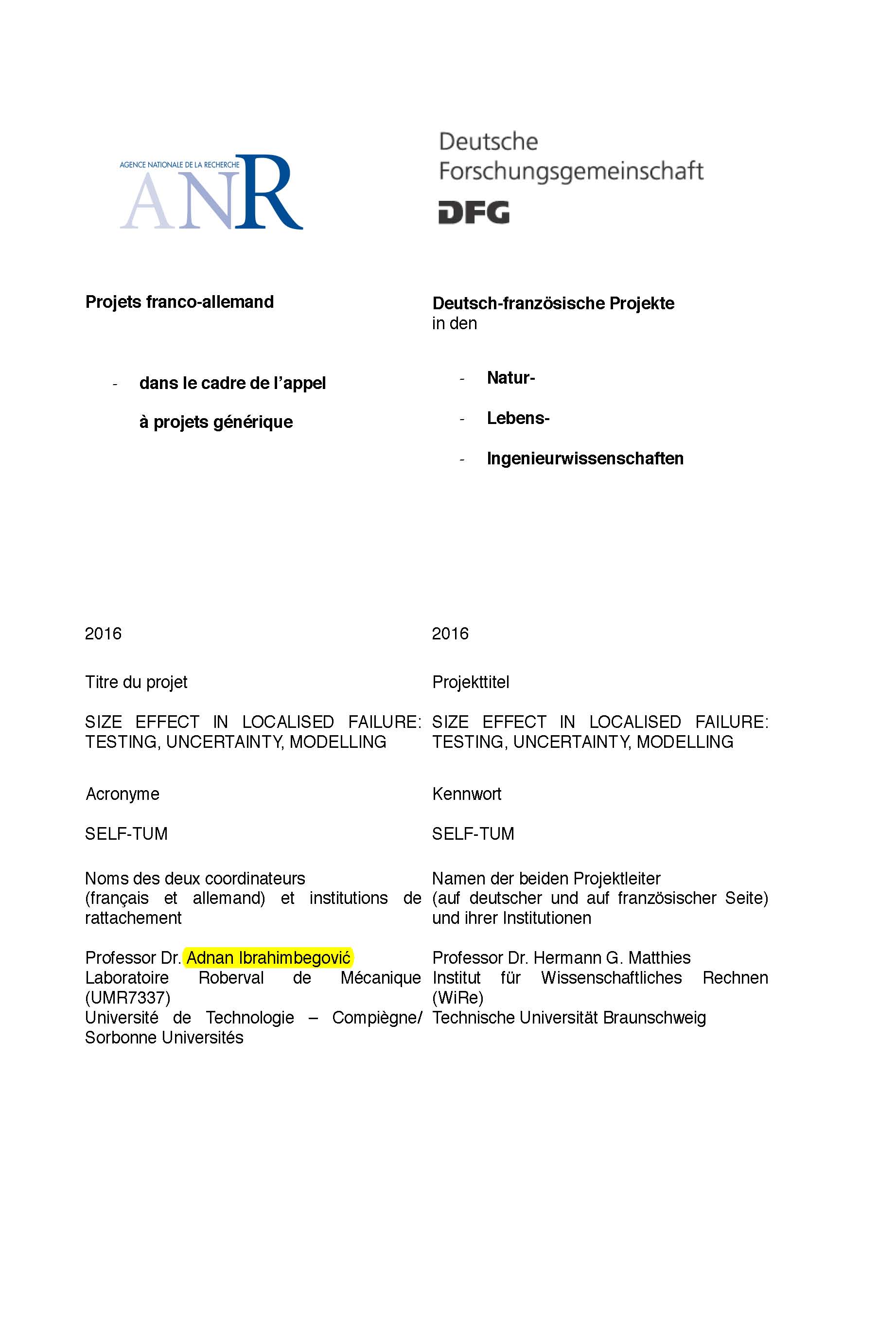
Gay-Lussac Humboldt Prize is awarded in France by the Ministry of National Education, Higher Education and Research with the assistance of the Academy of Sciences. The Gay-Lussac Humboldt Prize recognizes outstanding and internationally renowned German scientists. Two prizes worth € 60,000 each are awarded to scientists who are working in Germany, whose applications are presented by the French partners with whom they have developed or plan to develop cooperation.
In 2016, the senior of two laureates is Hermann Matthies, Professor of Universities, Director of the Institut für Wissentschaftiliches Rechnen (scientific computing) at the University of Technology in Braunschweig. His candidacy was presented by Prof. Adnan Ibrahimbegovic, holder of the Chair of Mechanics at U.T.C., supported by Prof. Pierre Ladevèze of E.N.S. Cachan and Prof. Roger Ohayon of CNAM. Scientific computing and the computer sciences are the field of research of Hermann Matthies.
For press release, consult:
http://www.enseignementsup-recherche.gouv.fr/cid112110/attribution-du-prix-gay-lussac-humboldt-2016.html
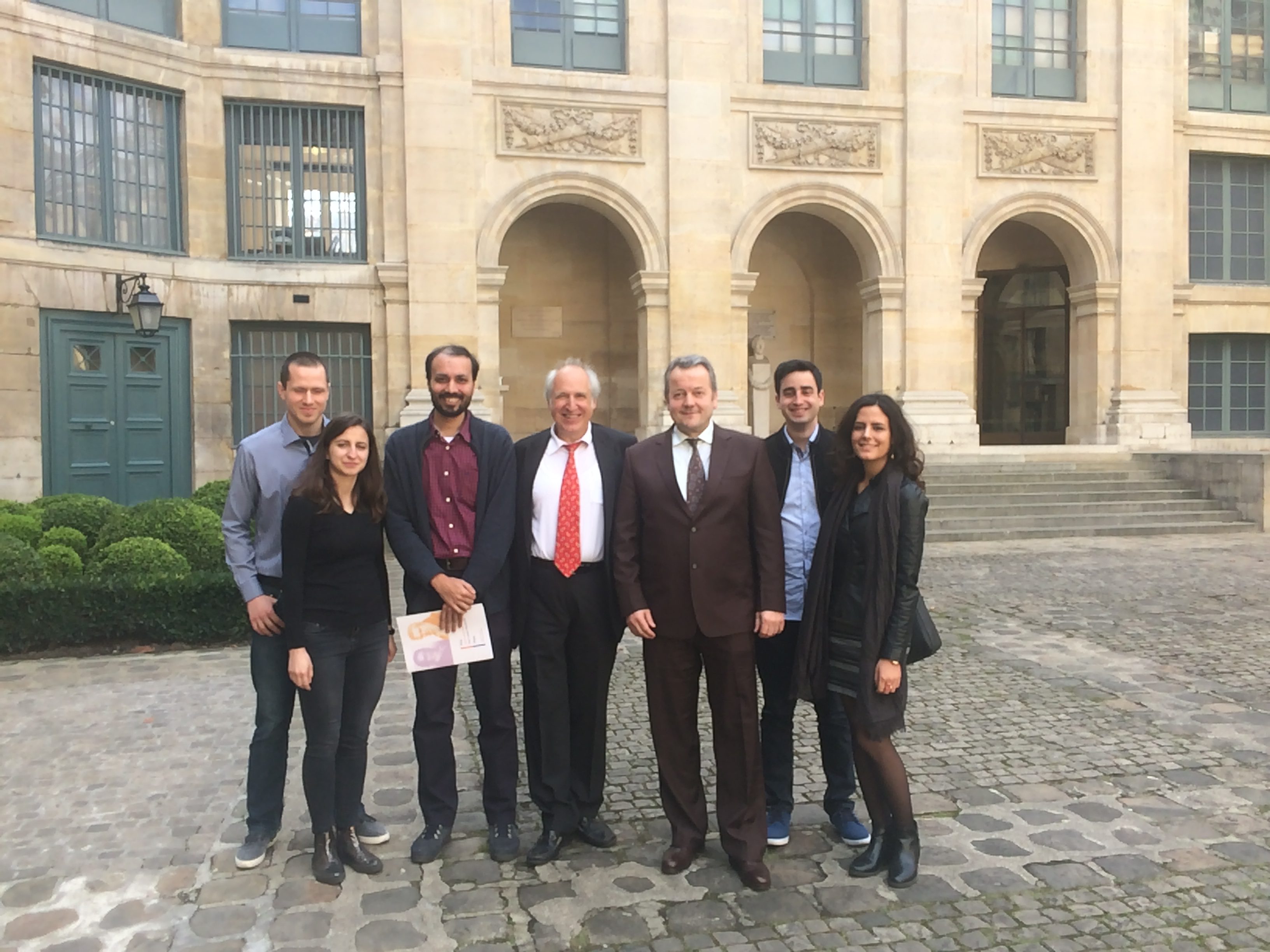
Professor Adnan Ibrahimbegovic is invited as visiting professor at Mechanical Engineering Department of KAIST – Korea Advanced Institute of Science and Technology, the top engineering school at South Korea. The collaboration with KAIST colleagues will start by Professor Adnan Ibrahimbegovic teaching a two-week course in KAIST doctoral school.
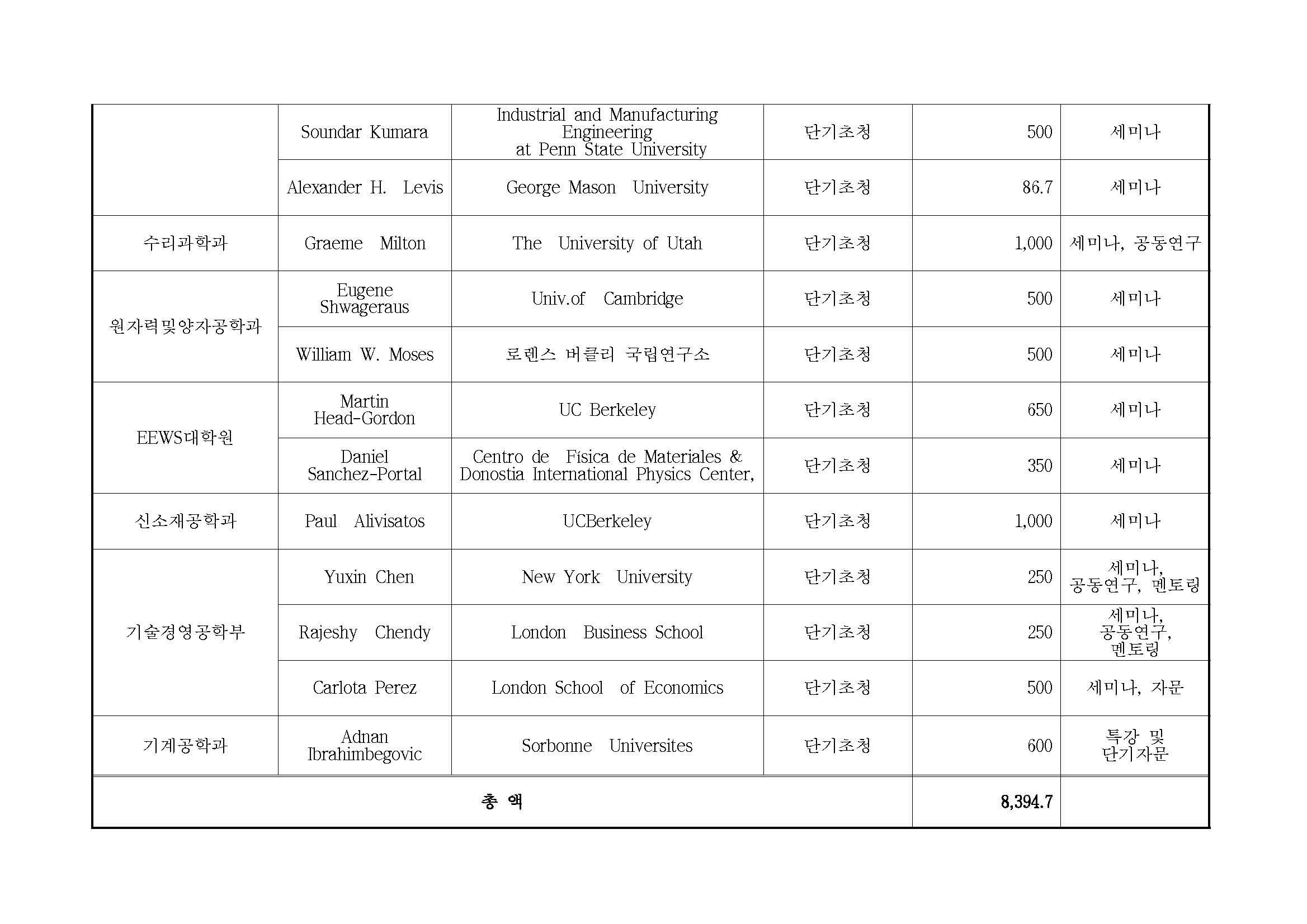
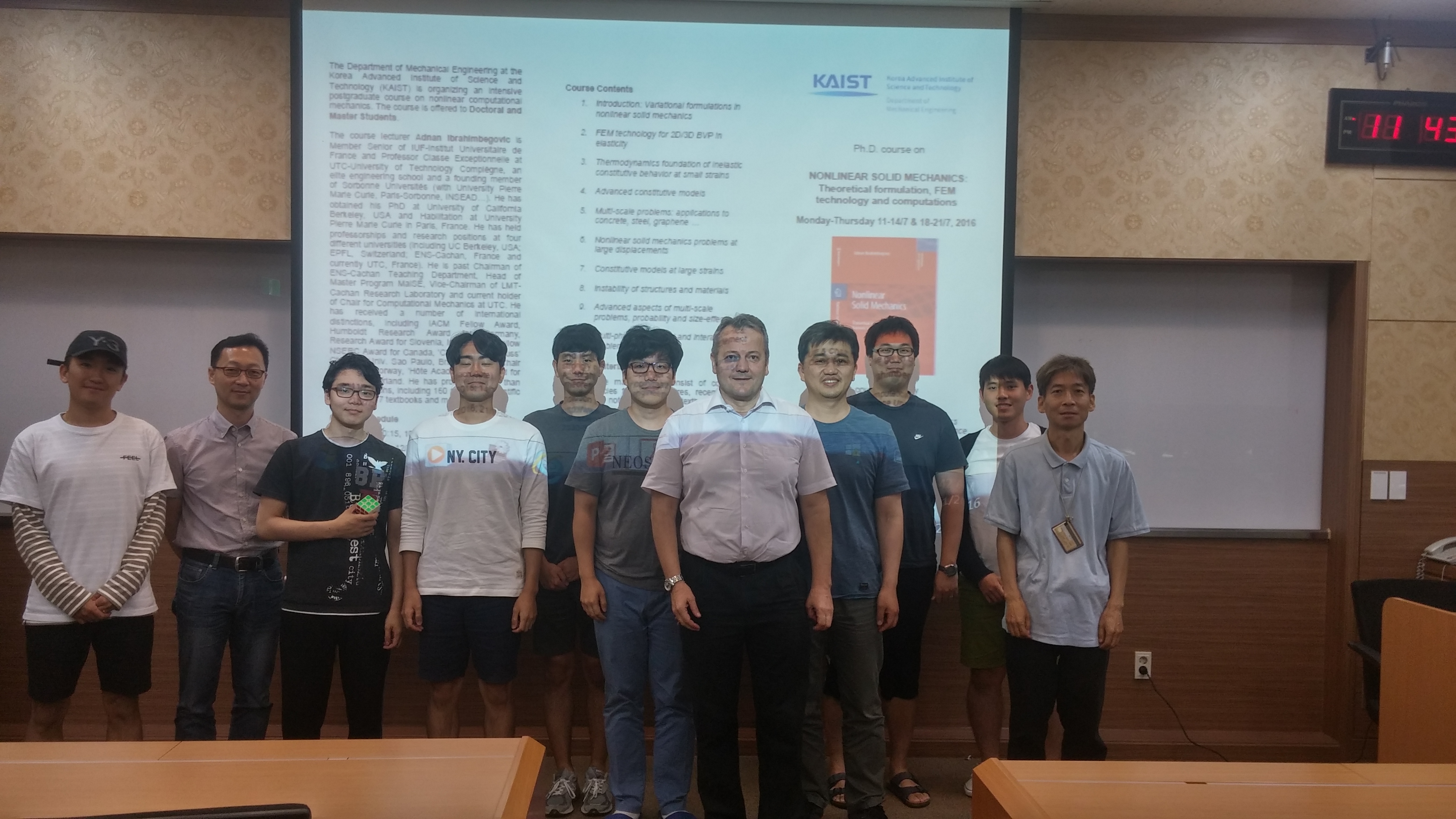
Prof. Adnan Ibrahimbegovic invited for a visit to IPN-Institut Polytechnic National, the biggest Technical University in Mexico City.
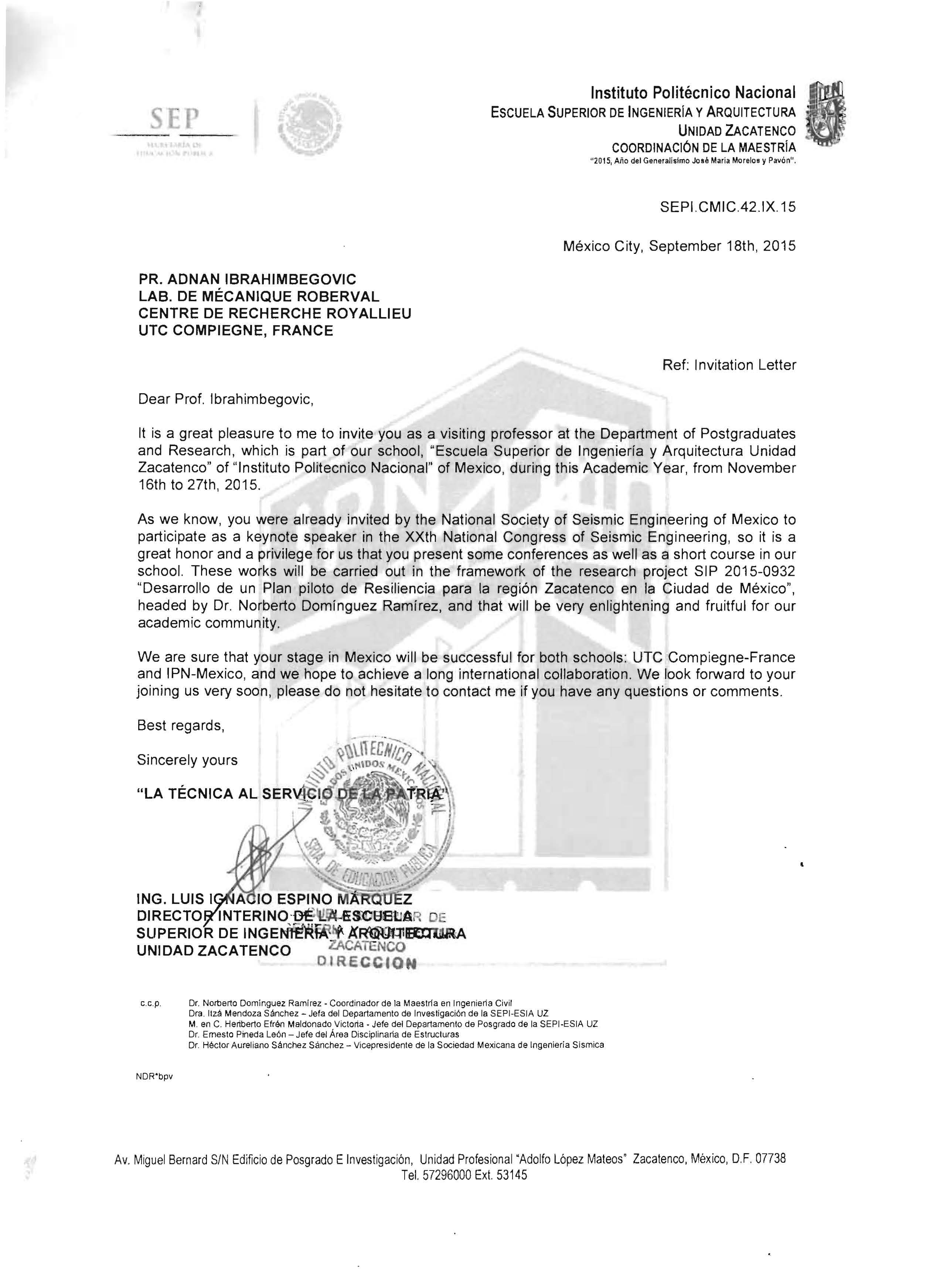
At this occasion, we have discussed possibilities of structuring the scientific collaboration, that was made official with the following signed agreement, and organized a short course and a couple of seminars.
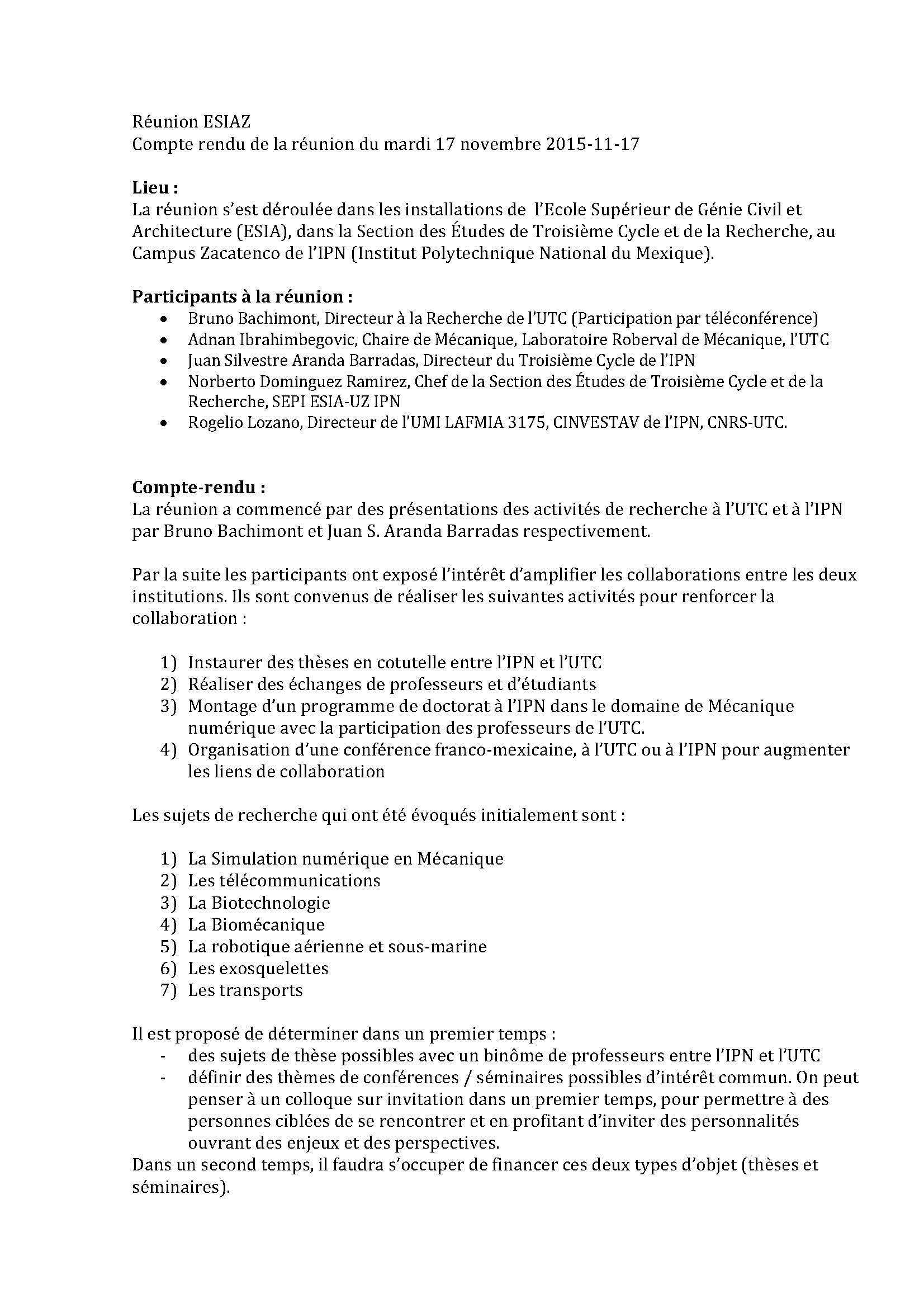
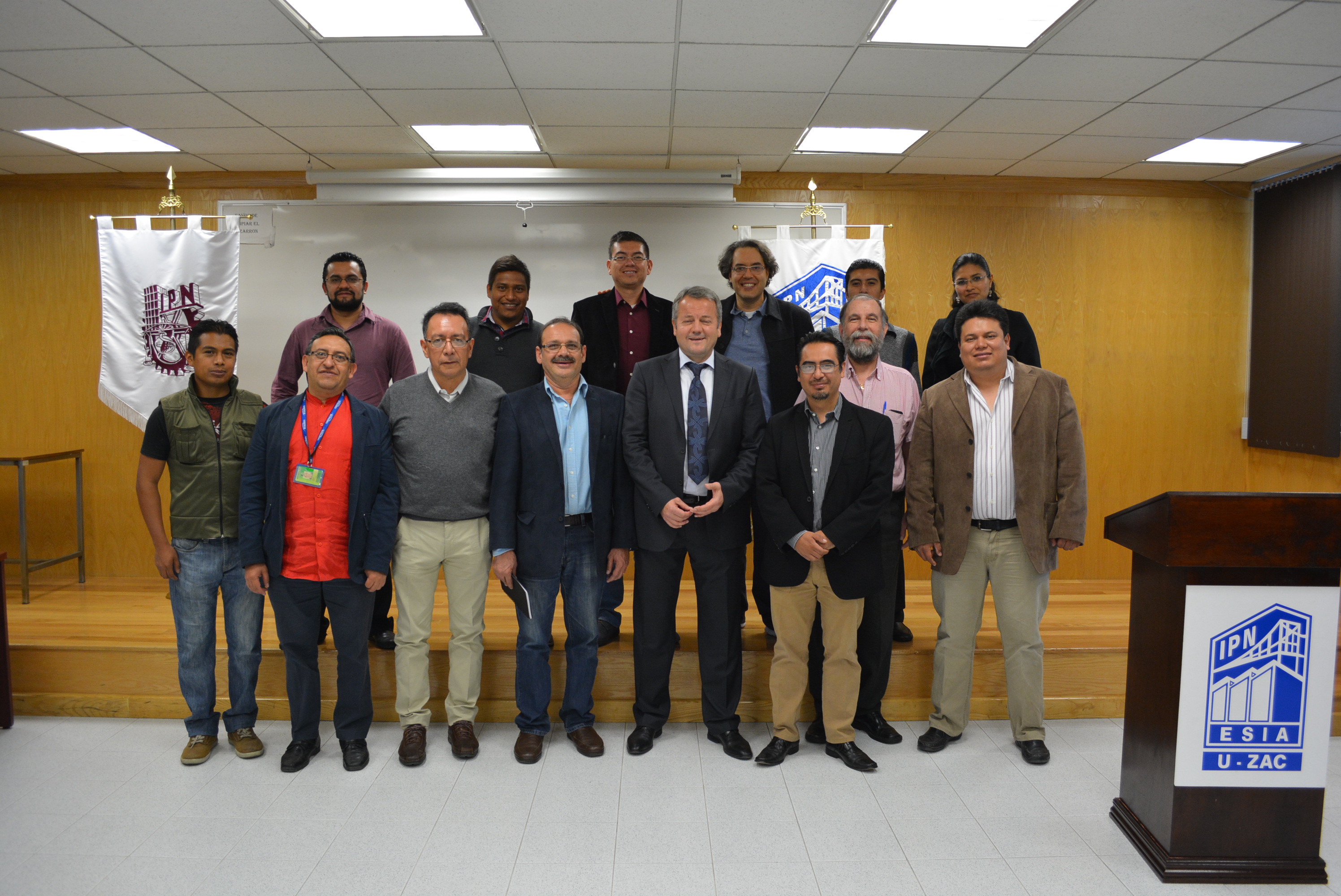
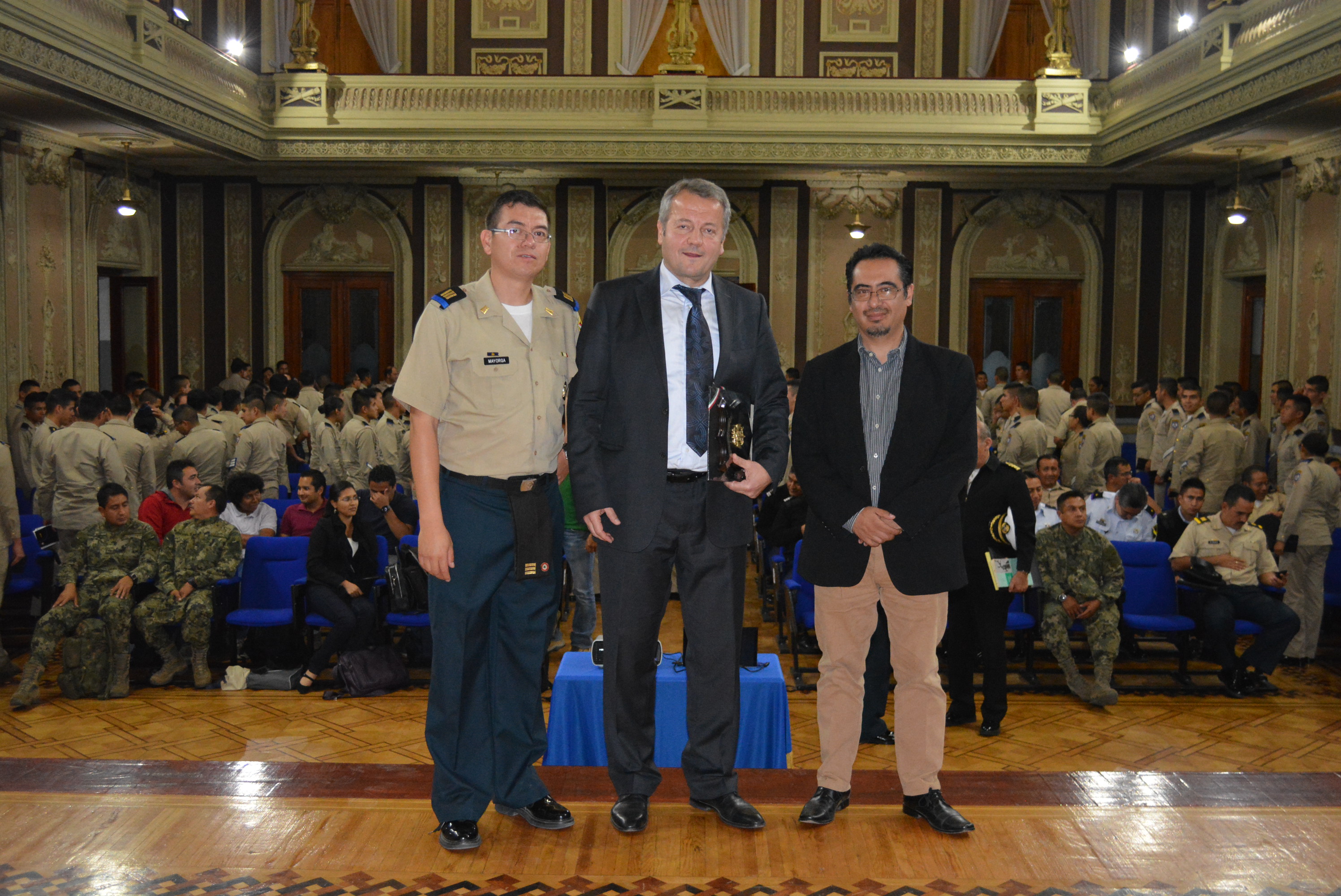
2016 Prof. Paulo Pimenta, appointed Chair CAPES at Sorbonne Universites
Official announcement: Two Brazilian researchers have been selected for 6 month stay at Sorbonne Universities with the financial support of CAPES in the framework of the “Chairs CAPES at Sorbonne University”. With this program, set up to mark the state visit of the President of the Republic in Brazil in December 2013, Sorbonne University joins Harvard, Oxford and Cambridge universities to benefit from this type of opportunity funded the Brazilian government. The winners are Prof. Marcelo Bozza (immunology, Federal University of Rio de Janeiro) to be hosted for six months at the National Museum of Natural History, and Prof. Paulo de Mattos Pimenta (Mechanical Engineering, University of Sao Paulo), which will stay at the Compiegne University of Technology for six months, collaborating with Prof. Adnan Ibrahimbegovic, the Chair for Computational Mechanics.
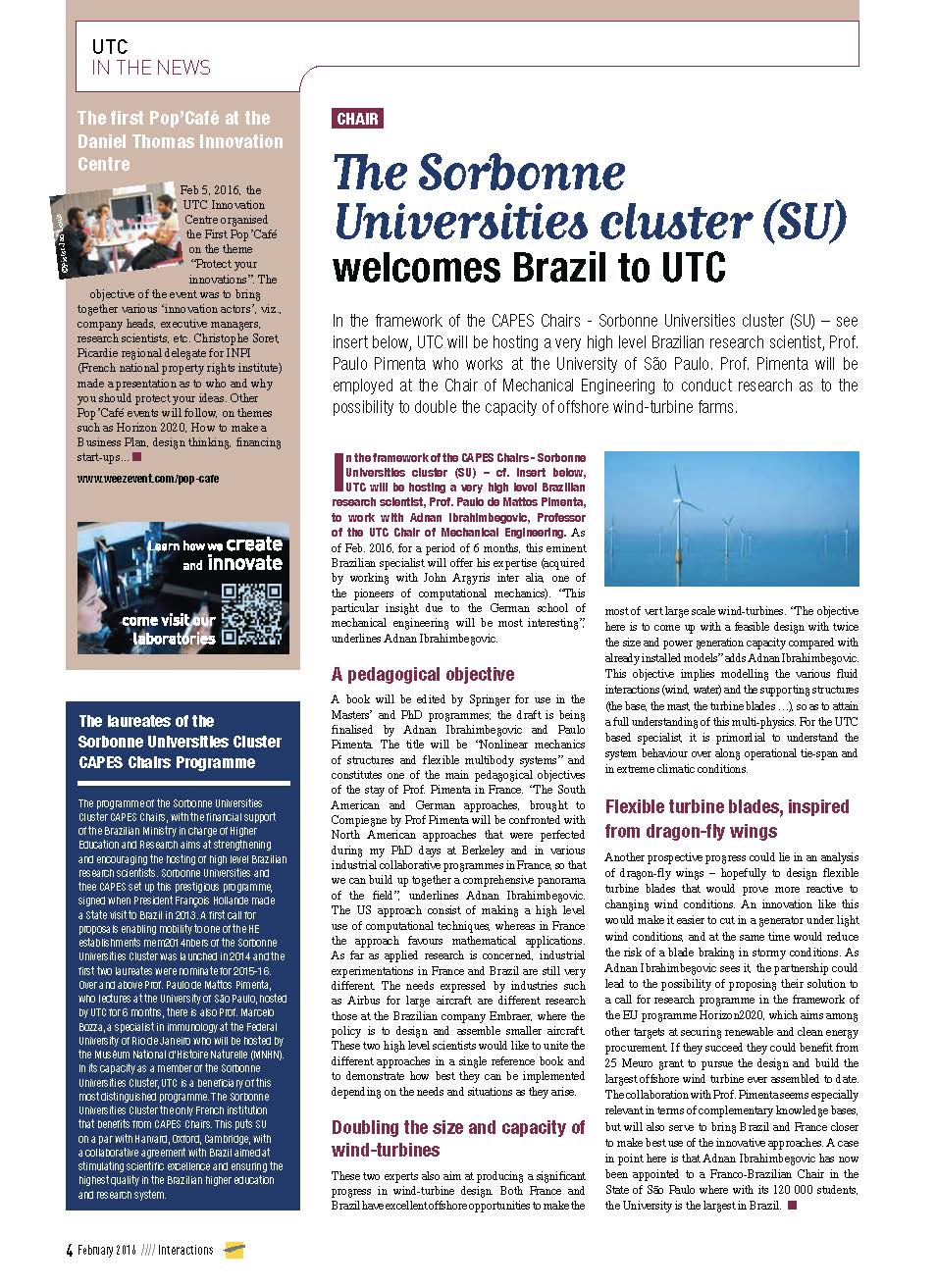
2016 Prof. Adnan Ibrahimbegovic to hold Chair Franco-Brazilian in the State of Sao Paulo, with the appointment at University of Sao Paulo
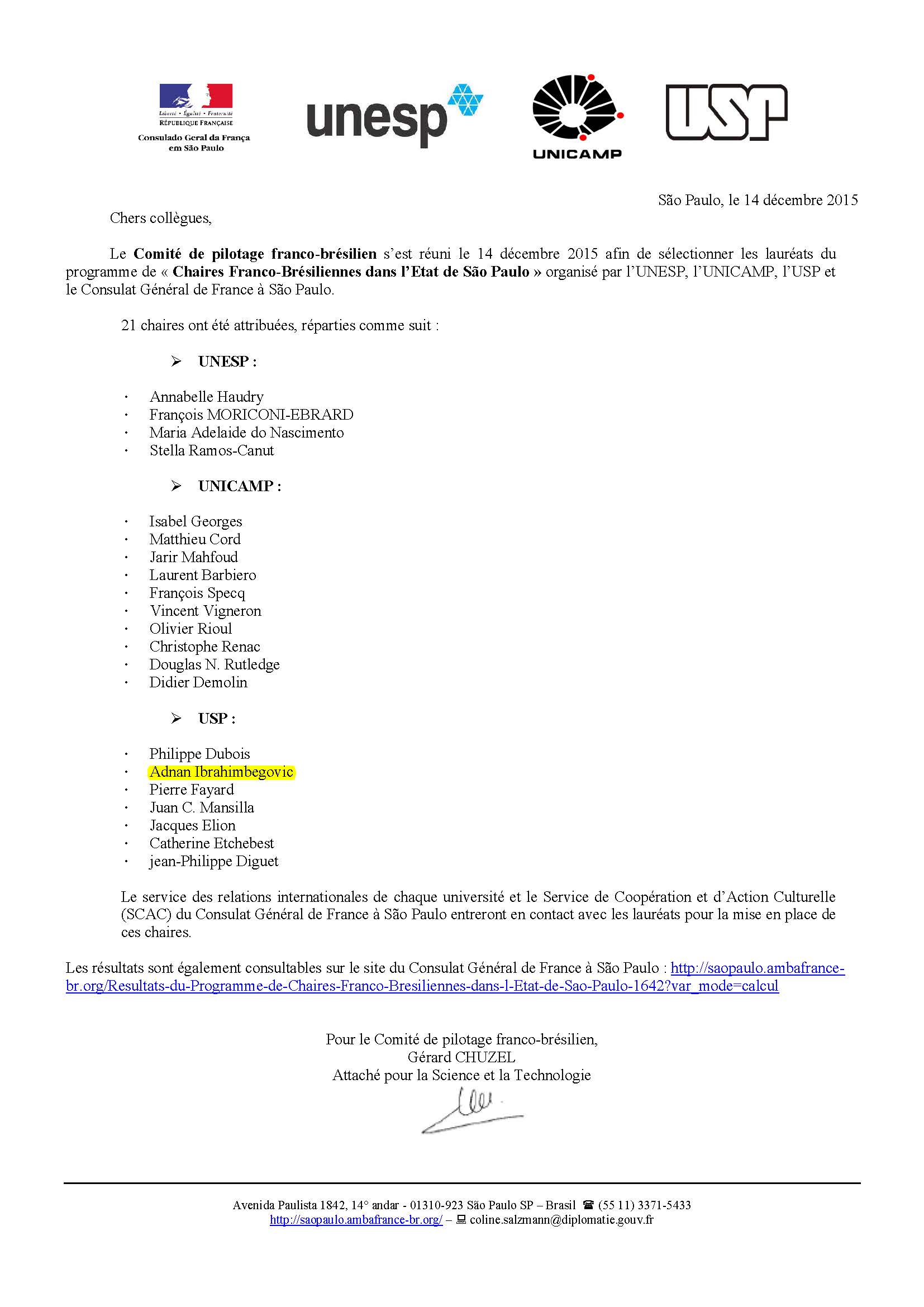

In order to accelerate the achievement of the strategic objective indicators of Renstra Kemristek Dikti 2015-2019, thus starting in fiscal year 2017, the Directorate General of Science & Technology Resource and Higher Education, Ministry of Research, Technology and Higher Education of Indonesia initiate World Class Professor program, a program inviting world-class professors from various famous universities both at home and abroad as a visiting professor to be placed in different universities in Indonesia for a maximum of 6 months. The program is intended for lecturers/researchers, so that they can interact with renowned and distinguished professors. Furthermore, they can also improve their academic life, competence, quality and contributions for IPTEK development and strengthen the National Innovation system, in an attempt to optimally utilize the diversity and richness of Indonesia’s national resources for Indonesia’s citizens welfare, as mandated by the constitution of Republic of Indonesia.
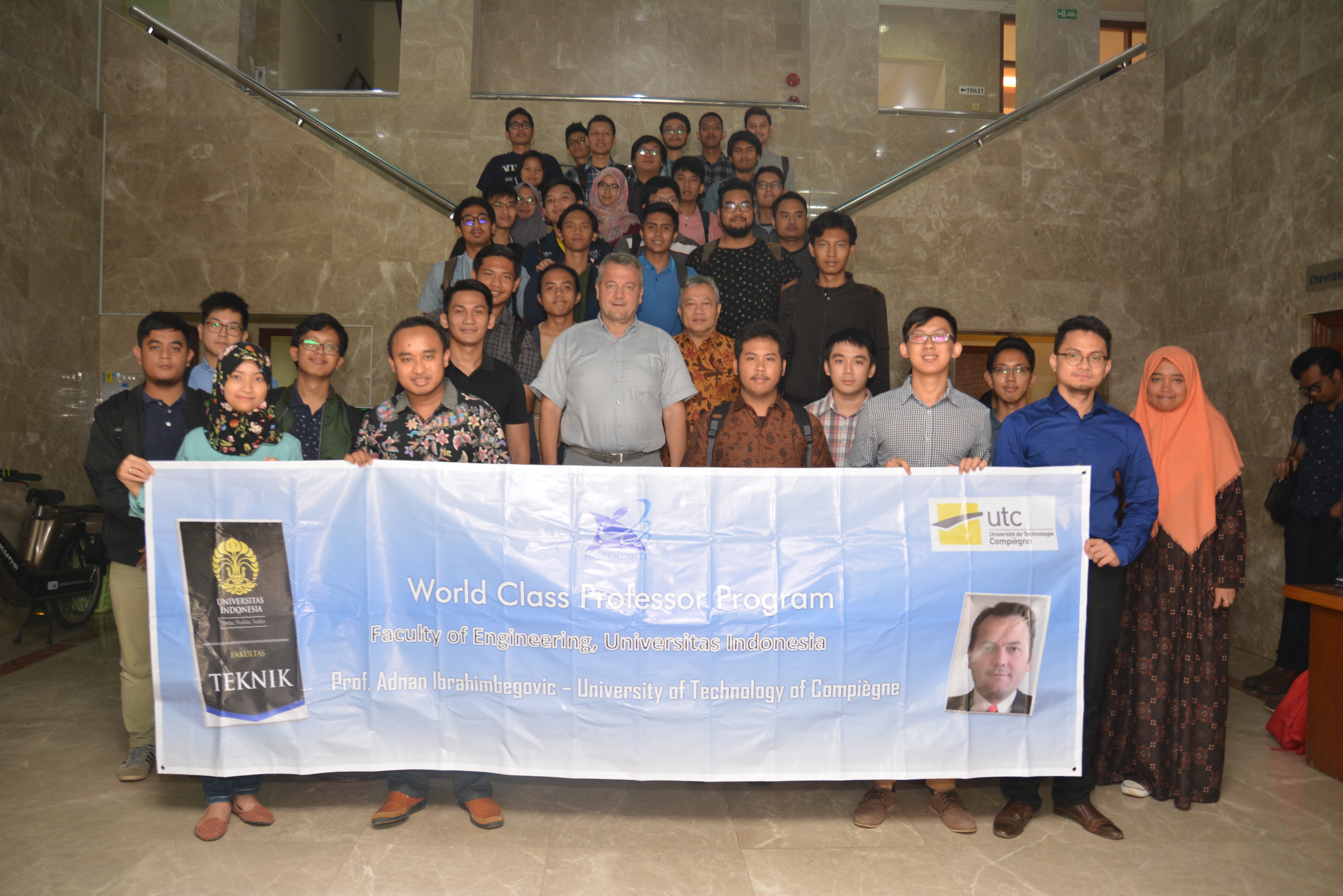
Professor Adnan Ibrahimbegovic is invited as visiting professor at University of Transportation and Communication, Hanoi, the top engineering school at Vietnam. The collaboration with UTC Hanoi colleagues will start by Professor Adnan Ibrahimbegovic recruitment of 3 doctoral students.
